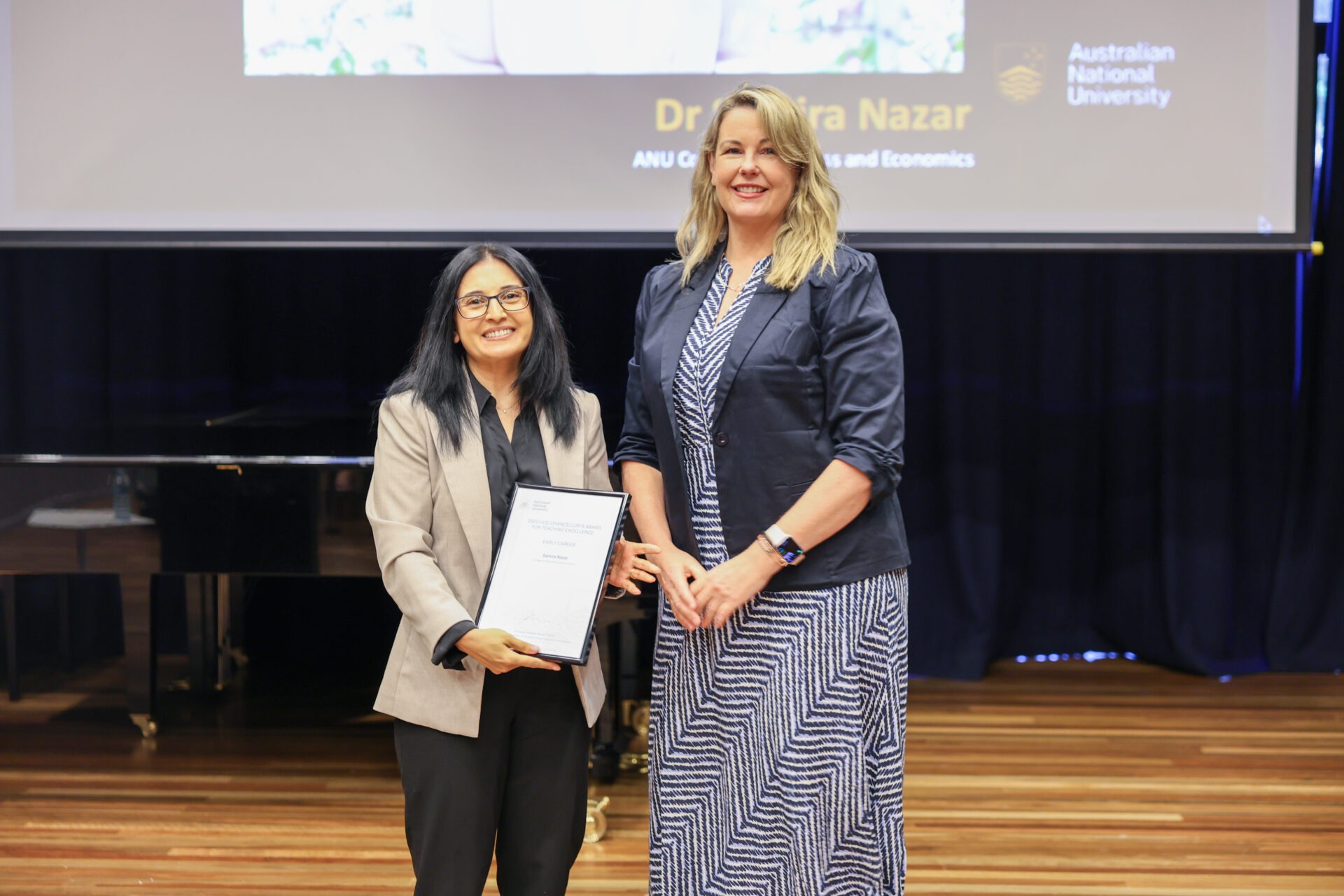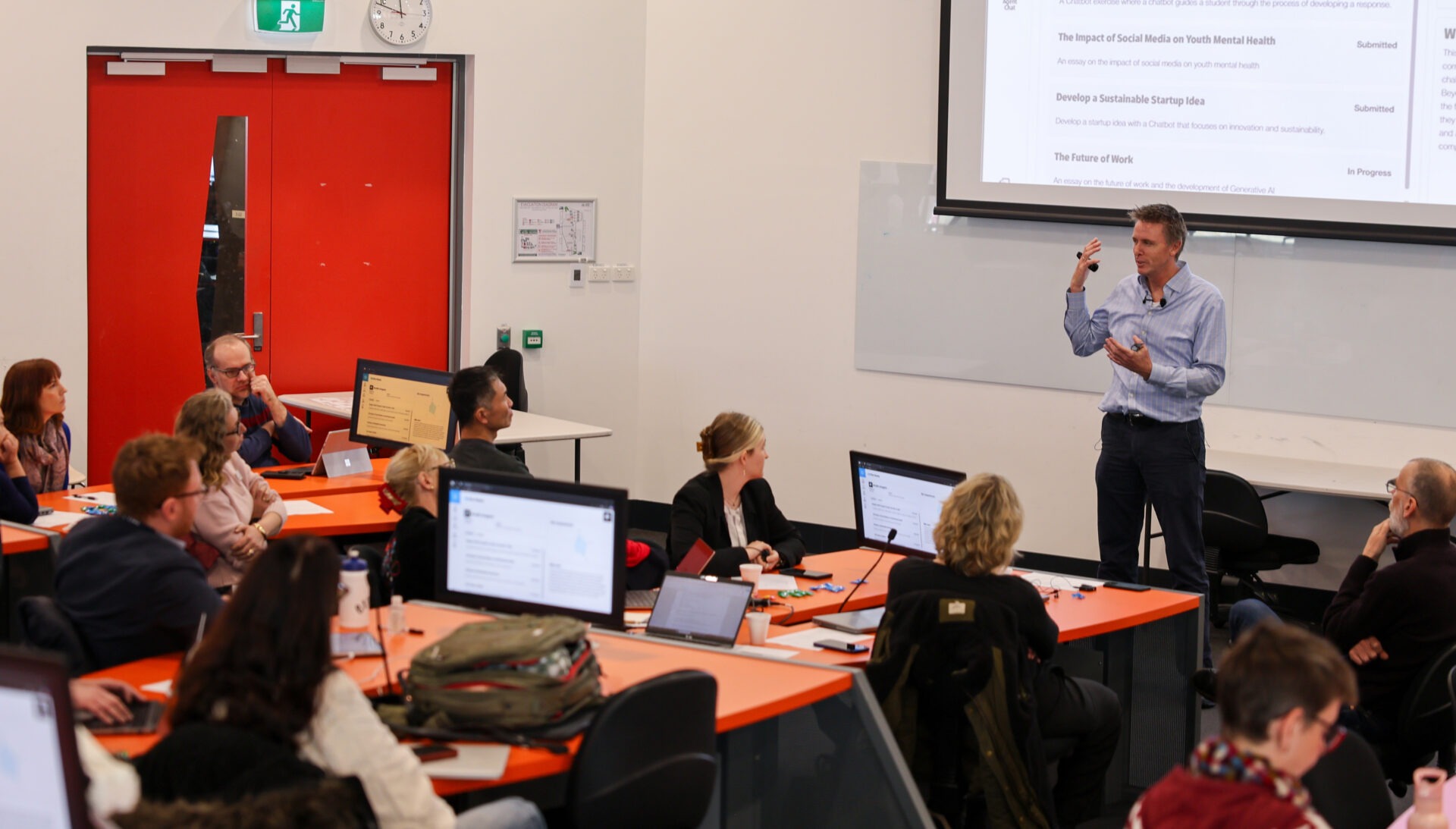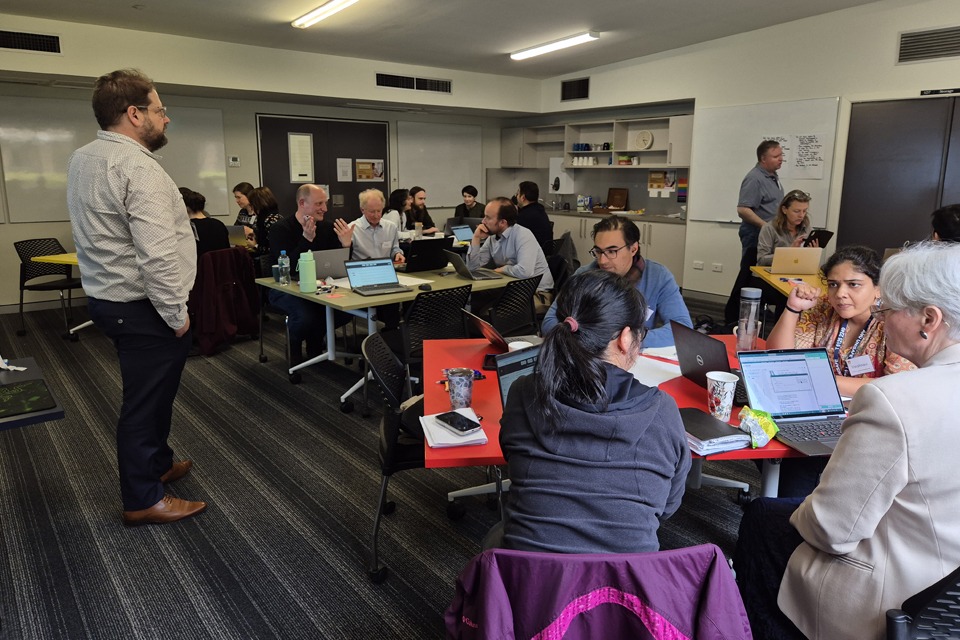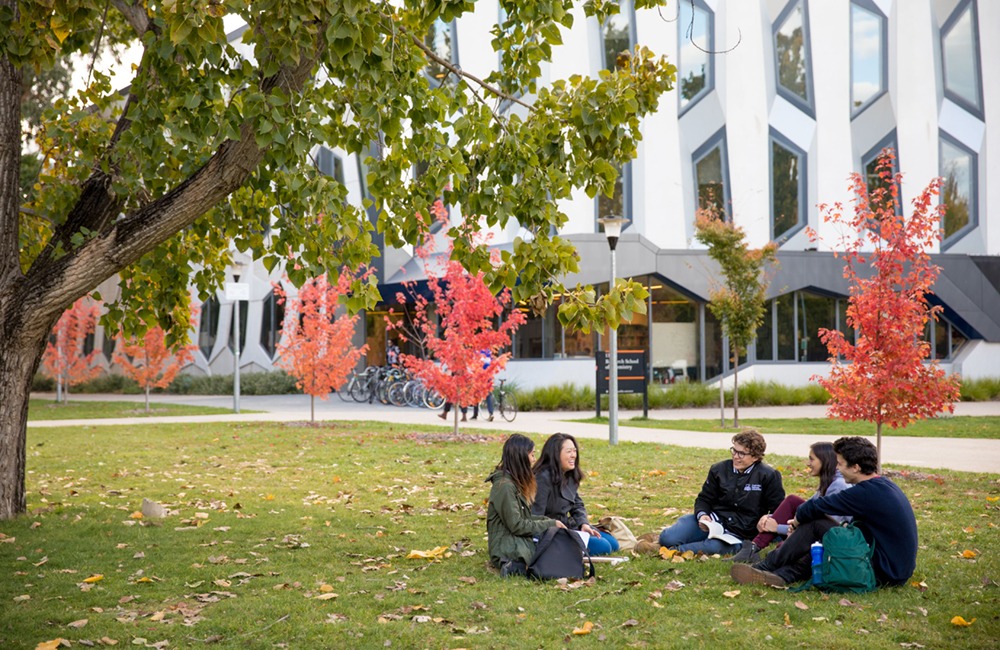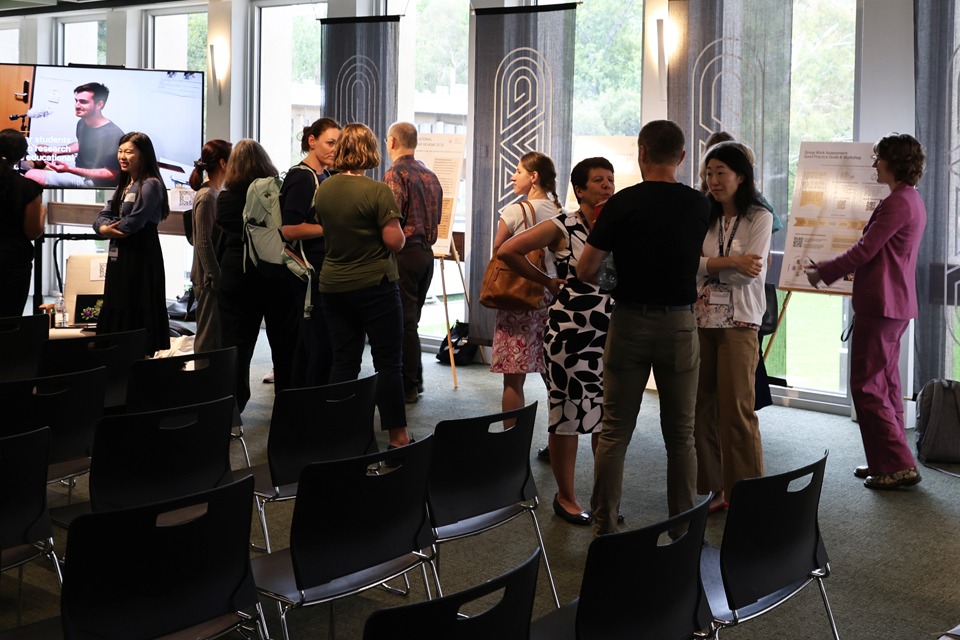The ASTUTE Program
To offer effective support in building essential interpersonal and communication skills, our team of educators, students and professional staff with expertise in student wellbeing, pedagogy and accessibility is developing and evaluating the ASTUTE (Anxiety Skills Training in University Education) program. ASTUTE is an evidence-based, social anxiety cognitive behaviour therapy program specifically tailored for university students that will be offered in two modalities:
- in-person, small groups facilitated by a psychologist and
- online self-help.
Its development is grounded in the principles of co-creation to ensure that student perspectives are prominent drivers of the program design. This project is supported by the ANU Strategic Learning and Teaching Grants.
Why is this program needed?
Social anxiety (i.e. the experience of anxiety in social situations such as public-speaking, job interviews or interacting with others) is prevalent among university students, with estimates as high as 16 per cent (Tillfors & Furmark, 2007). As students(Grieve et al, 2021) and educators(Vilaplana-Pérez et al, 2021) alike will attest, social anxiety is a major barrier to the attainment of the communication and interpersonal skills that are essential for high performance in academic and workplace settings (Deloitte Access Economics, 2014).
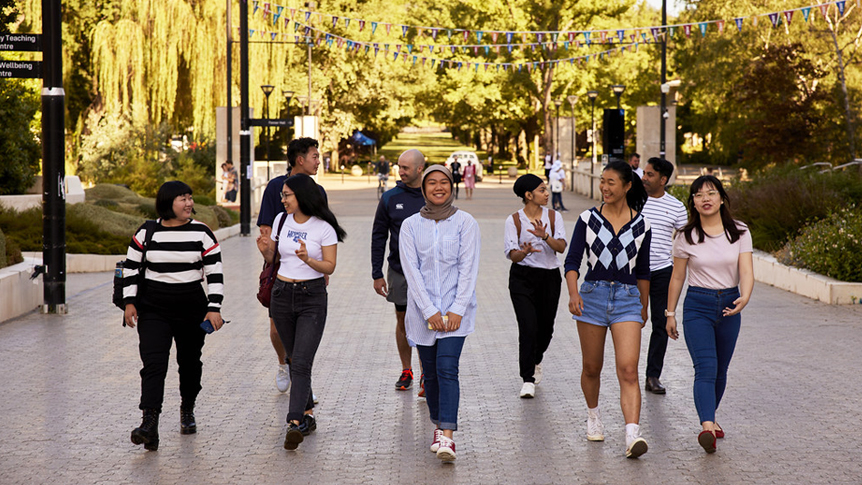
ANU Students in the Canberra campus, Kambri area.
Current approaches to supporting students with social anxiety
Educators currently have limited options for supporting students with social anxiety, relying almost exclusively on making adjustments to assessment pieces that have communication and interpersonal components. These adjustments typically entail finding alternative methods for students to demonstrate their content knowledge but omit the interpersonal components of the task (e.g. not being an active participant in tutorials). This approach seeks to ensure that mental health issues do not constitute a barrier for students in obtaining their degree. However, it also leaves a sizeable proportion of the student body under-prepared for their future careers. It may even prolong the student’s anxiety since it is well-established that avoidance serves to maintain anxiety (Heimberg, Brozovich & Rapee, 2010).
If you would like more information, including how to access the ASTUTE program, please contact Professor Elizabeth Rieger (E: Elizabeth.Rieger@anu.edu.au). Information on how to access the program is also available on the ANU Psychology Clinic webpage.
Professor Elizabeth Rieger, School of Medicine and Psychology, ANU College of Health and Medicine.
Project Team Members
- Prof Elizabeth Rieger, academic and clinical psychologist, School of Medicine and Psychology, ANU College of Health and Medicine
- Mr Reshad Heckbarally, Manager, ANU Accessibility
- Prof Bruce Christensen, Deputy Director and clinical psychologist, School of Medicine and Psychology, ANU College of Health and Medicine
- Dr Lou Farrer, academic and clinical psychologist, National Centre for Epidemiology and Population Health, ANU College of Health and Medicine
- A/Prof David Berle, academic and clinical psychologist, School of Medicine and Psychology, ANU College of Health and Medicine
- Dr Junwen Chen, academic and clinical psychologist, School of Medicine and Psychology, ANU College of Health and Medicine
- Dr Helen Maxted, Manager, ANU Psychology Clinic, School of Medicine and Psychology, ANU College of Health and Medicine
- A/Prof Merryn McKinnon, Associate Dean (Education), ANU College of Science
References
Tillfors, M., & Furmark, T. (2007). Social phobia in Swedish university students. Social Psychiatry and Psychiatric Epidemiology, 42, 79-86. https://doi.org/10.1007/s00127-006-0143-2
Grieve et al. (2021). Student fears of oral presentations and public speaking: A qualitative analysis. Journal of Further and Higher Education, 45, 1281-1293. https://doi.org/10.1080/0309877X.2021.1948509
Vilaplana-Pérez et al. (2021). More than just shyness: The impact of social anxiety on educational performance across the lifespan. Psychological Medicine, 51, 861-869. https://doi.org/10.1017/S0033291719003908
Deloitte Access Economics. (2014). Australia’s STEM workforce: A survey of employers. Office of the Chief Scientist. Available at https://www.chiefscientist.gov.au/sites/default/files/DAE_OCS-Australias-STEM-Workforce_FINAL-REPORT.pdf
Heimberg, R. C., Brozovich, F. A., & Rapee, R. M. (2010). A cognitive behavioural model of social anxiety disorder: Update and extension. In S. G. Hofmann & P. M. DiBartolo (Eds.), Social anxiety: Clinical, developmental, and social perspectives (pp. 395–422). Elsevier Academic Press.
